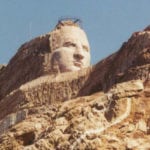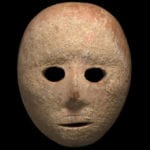 Weird Stuff
Weird Stuff  Weird Stuff
Weird Stuff  Mysteries
Mysteries 10 Tragic Disappearances and Deaths in Joshua Tree National Park
 History
History 10 Ways Childhood Really Sucked in the Old West
 Music
Music 10 Name Origins of Famous Bands from the 1990s
 Religion
Religion 10 Biggest Turnarounds by the Catholic Church
 Weird Stuff
Weird Stuff 10 Unbelievable Times Laws Had Unintended Consequences
 Humans
Humans Ten Historic Women Who Deserve Way More Credit Than They Got
 Movies and TV
Movies and TV 10 Films That Spawned Major Lawsuits
 History
History Ten Times Towns Were Wiped Off the Face of the Earth
 Creepy
Creepy 10 of the Most Disturbingly Haunted Public Houses in the UK
 Weird Stuff
Weird Stuff 10 Niche Subcultures That Are More Popular Than You Might Think
 Mysteries
Mysteries 10 Tragic Disappearances and Deaths in Joshua Tree National Park
 History
History 10 Ways Childhood Really Sucked in the Old West
Who's Behind Listverse?

Jamie Frater
Head Editor
Jamie founded Listverse due to an insatiable desire to share fascinating, obscure, and bizarre facts. He has been a guest speaker on numerous national radio and television stations and is a five time published author.
More About Us Music
Music 10 Name Origins of Famous Bands from the 1990s
 Religion
Religion 10 Biggest Turnarounds by the Catholic Church
 Weird Stuff
Weird Stuff 10 Unbelievable Times Laws Had Unintended Consequences
 Humans
Humans Ten Historic Women Who Deserve Way More Credit Than They Got
 Movies and TV
Movies and TV 10 Films That Spawned Major Lawsuits
 History
History Ten Times Towns Were Wiped Off the Face of the Earth
 Creepy
Creepy 10 of the Most Disturbingly Haunted Public Houses in the UK
10 Dark Secrets Of The Mongol Empire
In the 13th century, the Mongols erupted from their isolated homeland, forming one of the greatest empires the world has ever known. Although they had a reputation as simple warriors, the Mongol ruling family soon became the richest and most powerful clan on Earth. Moving from felt tents to their great palace city at Karakorum, the Mongol court hid all sorts of dark secrets.
10Murder
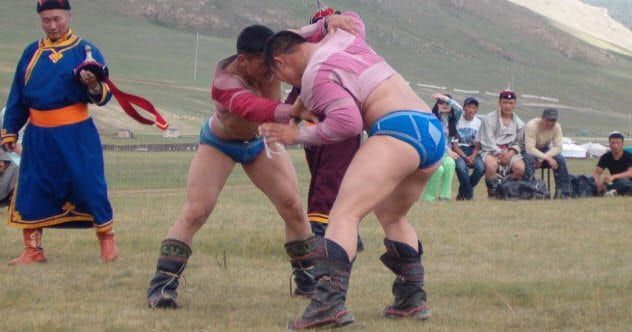
Genghis Khan committed his first murder at age 14. According to a near-contemporary chronicle known as The Secret History Of The Mongols, the young Temujin was often bullied by his older half-brother Begter. After Begter stole some food from them, Temujin and his younger brother Qasar crept up on Begter through the long grass and riddled him with arrows.
Unsurprisingly, Genghis remained fond of murder as a problem-solving method and a number of his enemies died sudden and suspicious deaths. A particularly petty case involved a famous Mongol wrestler named Buri, who had made the mistake of humiliating Genghis’s brother Belgutei in a match before Genghis’s rise to power.
The Secret History relates that after Temujin became Genghis Khan, he invited Buri for a rematch. Frightened by the khan’s power, Buri took what he thought was the safe option and allowed Belgutei to throw and pin him.
But at a signal from Genghis, Belgutei pressed his knee into Buri’s back and hauled on his collarbone, breaking his spine. The paralyzed wrestler was then dragged outside and left to die, presumably while contemplating his decision to throw a match before a ruler who had never respected cowardice.
9Executions
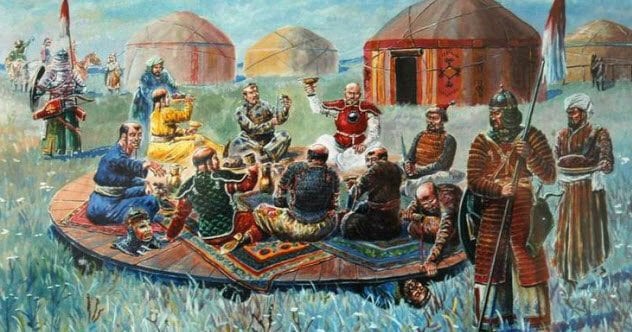
Although Genghis Khan restricted the use of torture, Mongol executions were often extremely grisly. When Guyuk Khan suspected that the powerful courtier Fatima had poisoned his brother, Guyuk had her tortured into confessing before “her upper and lower orifices were sewn up and she was rolled up in a sheet of felt and thrown into the river.”
The Mongols traditionally had a taboo against shedding royal blood, so another favorite method of execution was crushing. The Abbasid Caliph al-Musta’sim was rolled up in a carpet and trampled to death by stampeding horses. After the Battle of the Kalka River, captured Russian princes were shoved under some floorboards and crushed as the Mongols held their victory feast on top of them.
Genghis himself ordered that a captured Tangut ruler be renamed Shidurqu (“Loyal”) before he was crushed, so that his spirit would be forced to serve the Mongols in the afterlife. He was lucky compared to the Persian noble who was covered in sheep fat, wrapped in felt, and left tied up in the hot sun to meet his fate.
8Intrigue
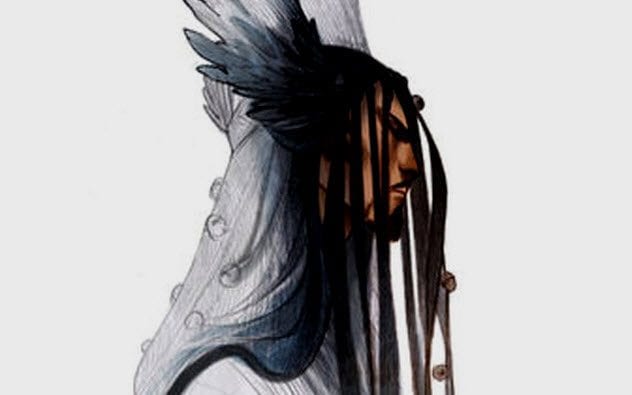
Despite the Mongol reputation as bluff, uncomplicated warriors, they were as fond of intrigue as any other people and the court often resembled a snake pit of competing factions. One of the earliest and most serious incidents came during the reign of Genghis himself when the shaman Teb Tengri began maneuvering to replace the khan’s brothers as the dominant power at court.
Teb Tengri first targeted the khan’s brother Qasar, reporting a prophetic vision that Qasar would try to take power for himself. Genghis immediately ordered Qasar arrested and seemed likely to sentence him to death.
The day was saved by Genghis’s mother, Hoelun. When she heard that Qasar had been arrested, she drove her cart through the night and burst into the khan’s tent. With Genghis too astonished to respond, she untied Qasar, whipped her coat off, and demanded to know if her sons could recognize the breasts that had suckled them. She then berated Genghis up and down the tent until the ashamed khan agreed to release his brother.
The shaman waited until Hoelun died before making another move, stealing the inheritance that should have gone to her youngest son, Temuge. When Temuge complained, Teb Tengri’s brothers beat Temuge and forced him to kneel and beg the shaman for his life.
This time, Genghis’s wife Borte intervened, warning that the shaman might move against Genghis one day. At this, Genghis resorted to his favorite trick and staged a wrestling match in which Teb Tengri’s back was broken and the paralyzed shaman was left outside to die.
7Sex Slavery
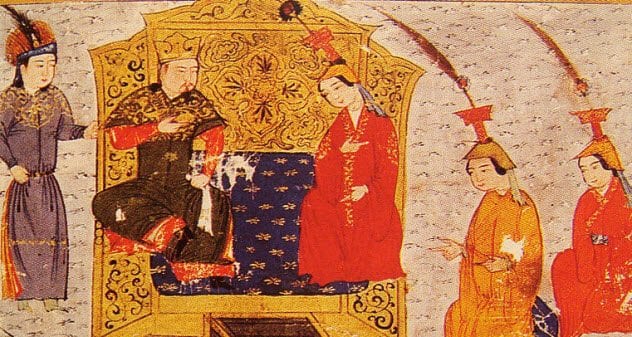
Although many Mongol women rose to positions of great power, the Mongols themselves weren’t exactly feminists. Foreign women captured on their campaigns were forcibly married to Mongol men or forced into service as concubines. The Mongols also often demanded young maidens as tribute from subject peoples.
In one famous example, the Siberian queen Botohui-tarhun (“Big And Fierce”) became one of the few people to defeat a Mongol army when she lured one of Genghis’s generals into an ambush. A later expedition defeated the Siberians and captured Botohui-tarhun, who was married off to a Mongol soldier and disappeared from history.
Some noble women made the best of a bad situation. When Genghis conquered the Merkids, he gave their princess, Toregene, to his son Ogedei. She soon eclipsed Ogedei’s other wives and ruled the empire for five years after his death.
6Alcoholism
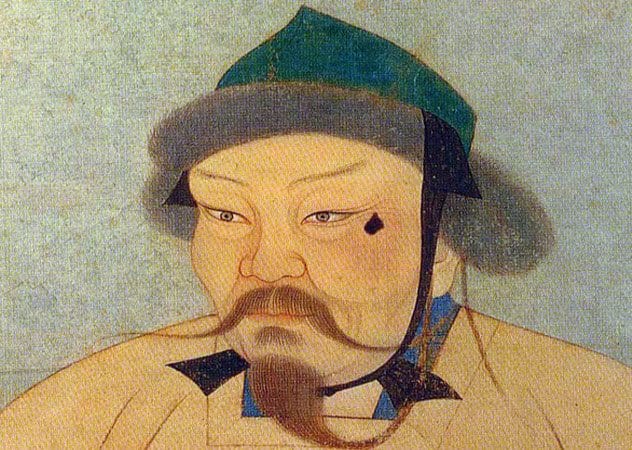
As impoverished herders, the Mongols had limited access to alcohol. They mostly drank fermented mare’s milk, which was only mildly alcoholic and not available year-round.
However, after the conquests of Genghis Khan, wealth flowed into the former backwater and many Mongols found themselves living lives of leisure, with unlimited access to wine and distilled spirits. As a result, alcoholism had already become a huge problem by the time of Genghis’s death.
Even the Great Khan’s family wasn’t immune, and at least two of his sons, Tolui and Ogedei, drank themselves to death. Their brother Chagatai was forced to strictly order his servants not to let him have more than a few cups a day.
The problem was particularly acute with Ogedei, who had succeeded Genghis as khan. Ogedei was almost completely dependent on wine, to the point that Persian historian Ata-Malek Juvayni claims that Ogedei often made key decisions drunk.
His minister, Yelu Chucai, repeatedly made the khan promise to drink less. But the promise never stuck, especially since his wife, Toregene, encouraged him to stay drunk so that she could take power for herself.
The problem didn’t end with Genghis’s sons. The European monk William of Rubruck visited the court of his grandson Mongke and reported a pervasive drinking culture, including a silver tree with four pipes that freely dispensed wine, rice wine, mead, and fermented mare’s milk.
5The Kidnapping That Helped Create And Destroy The Empire
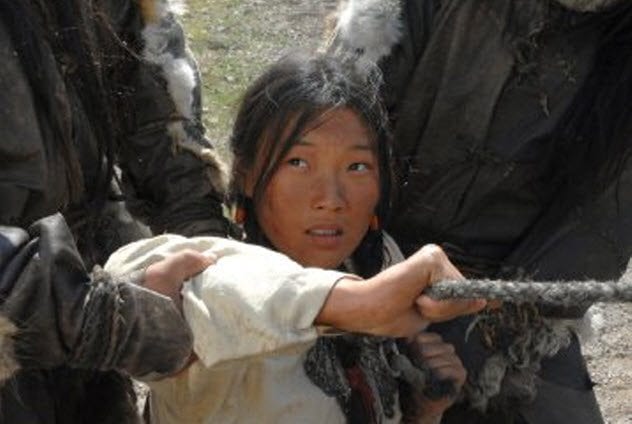
Around 1178, a newlywed named Borte was kidnapped by Merkid tribesmen. Her enraged husband, Temujin, quickly assembled a small coalition and attacked the Merkids, rescuing Borte and establishing his reputation as a formidable warrior. It was arguably the moment that put Temujin on the path to becoming Genghis Khan.
Yet if the kidnapping helped create the Mongol Empire, it also helped destroy it. By the time Borte was rescued, she was several months pregnant and no one could say for sure whether the father was her husband or one of her rapists. By all accounts, Temujin accepted the child as his. But the rumors persisted.
Many years later, the aging Genghis Khan called his family together to designate a successor. The obvious choice was his oldest son, Jochi. But his second son, Chagatai, insisted that he should take precedence over the “bastard son of a Merkid,” and the meeting descended into an undignified brawl.
Despite their father’s pleas, the brothers refused to reconcile. This forced a compromise where the throne went to Genghis’s third son, the alcoholic Ogedei, setting the stage for years of infighting and strife that eventually broke the empire apart.
4The Purge
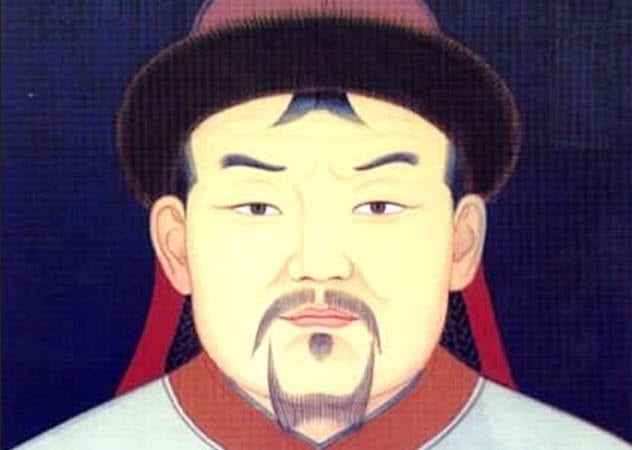
Genghis Khan carefully ensured that his son Ogedei would take the throne without opposition on Genghis’s death. The real problems started when Ogedei drank himself to death in 1241. Political infighting escalated into a vicious purge that almost exterminated the descendants of two of Genghis’s four sons.
Power was initially seized by Ogedei’s wife, Toregene, who ruled the empire for five years while she schemed to have her wastrel son Guyuk elected khan. She succeeded after much intrigue, including the execution of Genghis’s surviving brother, Temuge. But Guyuk turned against her after she tried to keep power for herself. Toregene’s advisers were executed, and the queen herself died under extremely mysterious circumstances.
Guyuk’s own sudden death two years later threw things back into chaos as the descendants of Jochi and Tolui teamed up to put Tolui’s son Mongke on the throne. They were opposed by the Chagataids and Ogedeids, who apparently tried to assassinate Mongke and stage a coup. In response, Mongke staged a massive purge.
The ministers of Ogedei and Guyuk were rounded up and murdered. Meanwhile, the army was formed into a massive line and sent sweeping through Mongolia, rounding up Ogedeid princes for execution. Special tribunals called jarghus were sent through the empire, conducting show trials of Ogedeid loyalists. The Ogedeids and Chagataids took years to recover, as the Toluids cemented their grip on the empire.
3Civil War
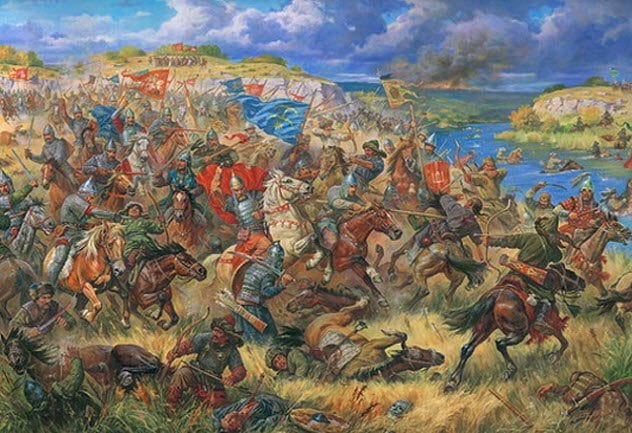
The first Mongol civil war almost broke out during the short reign of Guyuk. At a banquet in Russia, Guyuk had been involved in a moronic squabble with Jochi’s son Batu, which ended with Guyuk screaming that Batu “was just an old woman.”
The two were fierce rivals after that, and Batu refused to come to Mongolia to pay homage when Guyuk took the throne. In response, Guyuk summoned his army and marched on Batu’s territory in Russia. Fortunately, Guyuk died en route and outright war was averted.
The Mongols were less lucky after the death of Mongke Khan, as his brothers Kublai Khan and Ariq Boke quickly tore the empire apart in a massive civil war to determine who would succeed Mongke. In the chaos, the Ogedei and Chagatai clans made a comeback.
However, the clans of Jochi and Hulagu, Mongke’s other brother, broke away into independent states in the West, which became known as the Golden Horde and the Ilkhanate. The Mongol Empire would never truly be whole again.
2Religious Fanaticism
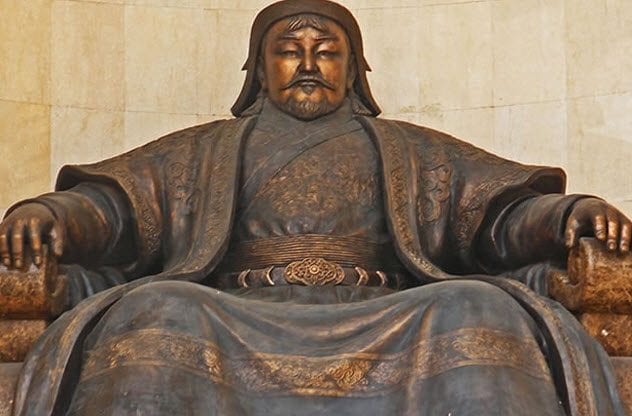
Although they were among the most religiously tolerant empires in history, the Mongol ruling clan fervently believed they had been set on a divine mission that justified the nightmarish slaughter of their conquests. In 1218, Genghis Khan climbed the pulpit of a mosque in the recently conquered city of Bukhara and informed the quaking citizens: “You have committed great sins. [ . . . ] If you had not committed great sins, God would not have sent a punishment like me upon you.”
Many years later, Genghis’s grandson Guyuk struck a similar note in a letter to Pope Innocent IV: “Thanks to the power of the eternal Heaven, all lands have been given to us from sunrise to sunset. [ . . . ] If you do not obey the commands of Heaven and run counter to our orders, we shall know that you are our foe.”
Another grandson, Mongke Khan, wrote to King Louis of France boasting that “in Heaven there is only one eternal God, and on Earth, there is only one lord, Genghis Khan. [ . . . ] When, by the virtue of the eternal God, from the rising of the Sun to the setting, all the world shall be in universal joy and peace, then shall be manifested what we are to be.”
Hulagu Khan neatly summed things up in another letter: “God . . . spoke to our grandfather, Genghis Khan, through Teb Tengri, saying ”I have set thee over the nations . . . to throw down, to build, and to plant. [ . . . ] Those who do not believe will later learn [their] punishment.”
1The Plan To Exterminate The Chinese
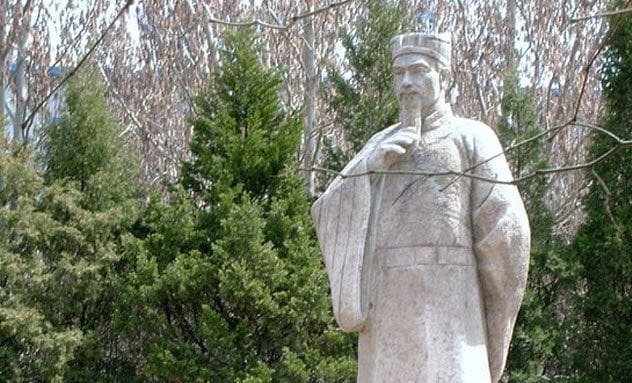
The Mongols were always most comfortable on the open plains, which provided plenty of fodder for their horses. Months or years before embarking on a campaign, they would send smaller detachments of soldiers ahead to burn farms, orchards, and villages. This allowed the land to revert to pasture by the time the main Mongol army arrived.
Infuriated by the difficulty of conquering a heavily developed land like China, Ogedei Khan considered a horrifying expansion of this scheme. Essentially, the plan was to slaughter the northern Chinese peasantry and turn the former territory of the Jin dynasty into one huge pasture.
This genocidal scheme was stopped largely through the efforts of Ogedei’s Chinese adviser, Yelu Chucai. He persuaded the khan that introducing a system of taxation would be more beneficial in the long run by providing a steady stream of revenue to fund the Mongol conquests. Fortunately, Ogedei listened to his minister and never signed off on the plan to ethnically cleanse northern China.

